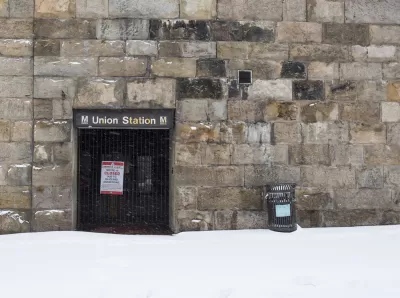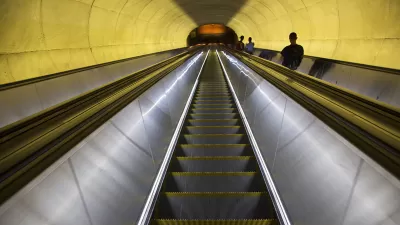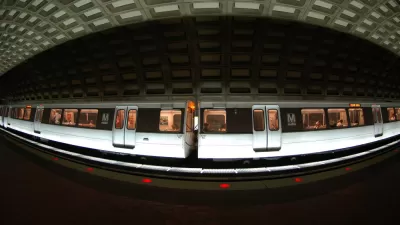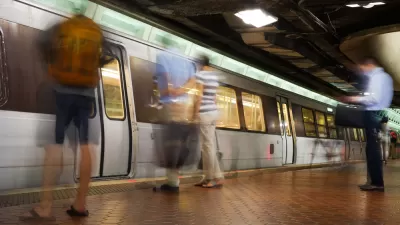For months, transit advocates have dreaded the decision to raise fares and cut service throughout the D.C. Metro system. That day arrived last week. Changes take effect on July 1.

"[D.C.] Metro’s board gave final approval Thursday to fare increases and service cuts as part of an austere fiscal 2018 budget aimed at easing the transit agency’s financial struggles," reports Faiz Siddiqui.
The system's first fare hike in the last three years will increase fares for rail transit in peak hours by 10 cents. Rail transit fares during off-peak hours will increase by 25 cents. Bus fares will also increase by 25 cents.
"As part of changes approved in the $1.8 billion operating budget, riders also will spend more time on platforms, as trains arrive about every eight minutes across most of the system, with more frequent service in the downtown core," adds Siddiqui. "But there will be fewer trains overall on five of six rail lines."
The article includes more details about the changes coming to the Metro system, including an expected 500 layoffs, in addition to the 500 employees already laid off. Siddiqui quotes extensively from the justifications for the cuts from soundbites by Metro General Manager Paul J. Wiedefeld.
FULL STORY: Metro makes it official: Higher fares, reduced service coming July 1

Planetizen Federal Action Tracker
A weekly monitor of how Trump’s orders and actions are impacting planners and planning in America.

Chicago’s Ghost Rails
Just beneath the surface of the modern city lie the remnants of its expansive early 20th-century streetcar system.

San Antonio and Austin are Fusing Into one Massive Megaregion
The region spanning the two central Texas cities is growing fast, posing challenges for local infrastructure and water supplies.

Since Zion's Shuttles Went Electric “The Smog is Gone”
Visitors to Zion National Park can enjoy the canyon via the nation’s first fully electric park shuttle system.

Trump Distributing DOT Safety Funds at 1/10 Rate of Biden
Funds for Safe Streets and other transportation safety and equity programs are being held up by administrative reviews and conflicts with the Trump administration’s priorities.

German Cities Subsidize Taxis for Women Amid Wave of Violence
Free or low-cost taxi rides can help women navigate cities more safely, but critics say the programs don't address the root causes of violence against women.
Urban Design for Planners 1: Software Tools
This six-course series explores essential urban design concepts using open source software and equips planners with the tools they need to participate fully in the urban design process.
Planning for Universal Design
Learn the tools for implementing Universal Design in planning regulations.
planning NEXT
Appalachian Highlands Housing Partners
Mpact (founded as Rail~Volution)
City of Camden Redevelopment Agency
City of Astoria
City of Portland
City of Laramie





























